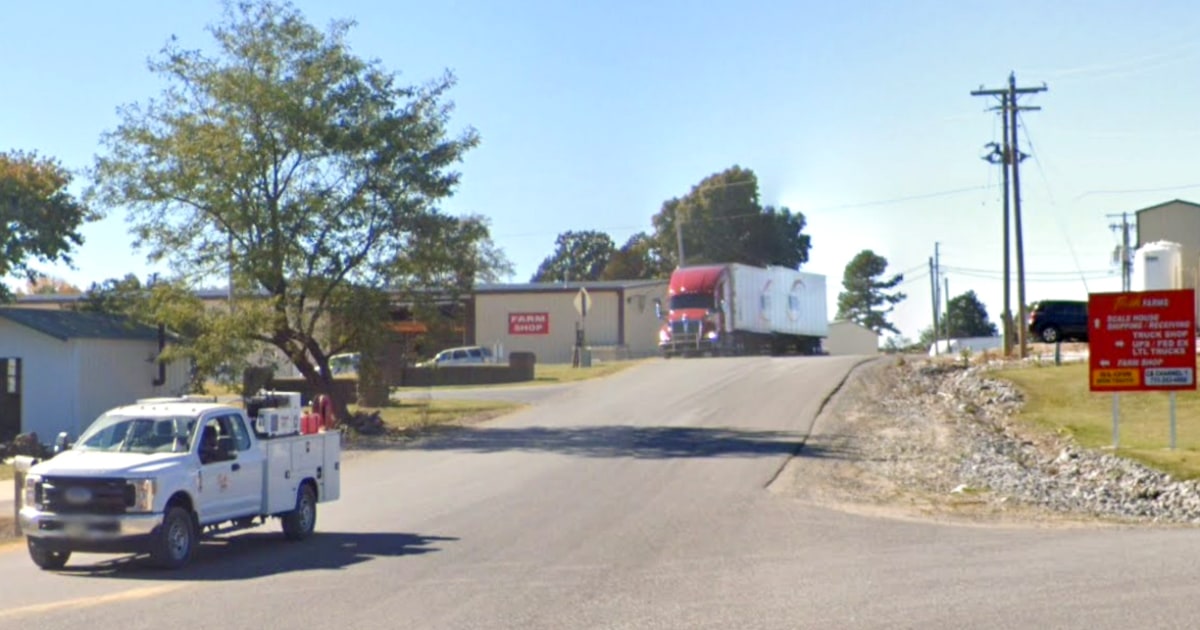Agricultural sector workers protest on the Panamericana highway, on December 2.Sebastián Castañeda / Reuters
A protest by farm workers that began peacefully on the southern coast of Peru ended with one of the protesters killed by a police shot.
Jorge Muñoz Jiménez, 20 years old, was among the group of employees in the agro-export sector who on Monday morning went to the Pan-American Highway to protest for their labor rights and, in their attempt to move towards the northern highway from that same road, he met the police who responded to the march with tear gas and shots.
According to the father of the victim, José Antonio Muñoz, the impact was shot.
"We have the cap," he told SolTV, a local media outlet in the La Libertad region.
The police chief of the place, Ángel Toledo, denied to the radio station Radioprogramas that the agents had used pellets or firearms, but the images released by the local press contradict his version.
In these you can see the cartridges that were left on the pavement in the area of the protests.
"It has been a peaceful march of the people in Valle de Dios, and the police have used tear gas canisters.
[My son] got a pellet on the head and took his life.
She had recently gotten engaged, she had a baby, and now what is coming ”, lamented the young man's father at the Puente Chao health center, Virú province.
Minutes after the videos of the young man's death after the police repression circulated, President Francisco Sagasti confirmed to EL PAÍS in a press conference what happened in the protest.
“Yes, the information just came through.
It was in Virú ”, he said.
“It is not within the government's policy schemes, we will investigate exactly what happened, what the circumstances have been.
It really is a tragedy, we do not want anyone to die in protests to defend their labor rights, "he added.
According to General Toledo, some 8,000 people participated in the demonstrations on Thursday along the 16 kilometers of the North Pan-American Highway and when there were "attacks beyond what was tolerable" the authorities used tear gas.
He also indicated that he could not know if the impact that the worker who died received was a bullet or pellet.
"Let the Public Ministry investigate the causes of death," he noted.
Another wave of police violence may create instability for the Sagasti government, as happened with the brief interim mandate of Manuel Merino.
Between November 9 and 14, the Peruvian police attacked peaceful protesters in Lima, causing the death of two young people and more than 60 injured requiring hospitalization.
Investigations against the political and operational leaders of that bloodbath are ongoing.
This week's agricultural strike began in Ica, a region famous for its asparagus, blueberry, and grape farms, but also for the water stress generated by agro-exports in the last decade.
The workers of Ica, who are not organized into unions, ask for the repeal of a law approved in 2000 by Alberto Fujimori, which allows agro-industrial companies to pay less labor benefits than the general regime.
When the rule was promulgated, it was announced as provisional, only for five years, but the governments of Alejandro Toledo and Martín Vizcarra, respectively, extended it so that it remains in force until 2031.
Anthropologist Ana Lucía Araujo points out that Law 27360 allows agroindustries to contribute a lower percentage to social health insurance than the rest of the general regime companies, and conditions the insured's affiliation to the time of service.
In Virú, the region of the protests this Thursday, there are - according to Araujo - 36,000 agricultural export workers and only two social security health centers.
According to the researcher, this sector has significantly increased its exports and profitability.
"Between 2000 and 2018, the exported value grew by more than 1000% to reach 6,000 million dollars, and by 2020 it is one of the only ones that continued to grow in a pandemic," he says.
However, the wages of workers on agro-export farms have readjusted below the average percentage of annual inflation in the South American country, less than 2% per year (except in 2017, which was higher).
Ica workers, such as Geraldine Martínez, explain that some of the legal benefits - such as overtime, holidays worked, vacations or compensation for time of service and social health insurance - are not specified because the Most agro-export companies prefer that there is no employment relationship, therefore, other companies outsource the hiring. On Wednesday, at an assembly in Ica, a delegation from the Ministries of Labor and Agriculture offered the workers to terminate the
services
- those that outsource recruitment - and increase the number of labor inspectors in the region. In addition, it proposed repealing the labor regime chapter of the agrarian promotion law, also known as the Chlimper Law, by José Chlimper, a former Minister of Agriculture of the Fujimori government, whose family businesses were among the most benefited by this exceptional regime.














